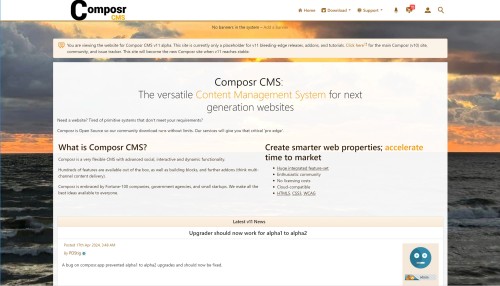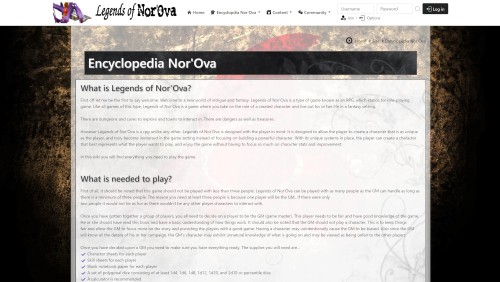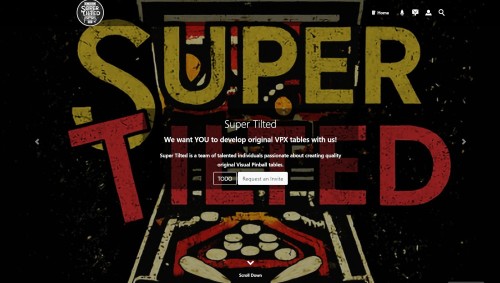Featured Sites: A-Z Index
H
Newest 10 Entries
| Question | How can I improve my search results? |
|---|---|
| Answer | Here are some tips for improving search results:
|
| Question | What is the fast custom index and why should I use it? |
|---|---|
| Answer | The fast custom index is Composr's own search engine, designed to be faster and more efficient than MySQL full-text search, especially for large websites and filtered searches. Benefits of the fast custom index:
Downsides of the fast custom index:
|
| Question | Can I filter my search results? |
|---|---|
| Answer | Yes, you can filter your search results by:
|
| Question | What is the difference between natural and boolean searching? |
|---|---|
| Answer | Natural search is a more relaxed approach where you type in your search terms and Composr tries to find the most relevant results, even if they don't contain all the words. It's like a Google search. Boolean search requires more precision and uses operators like "+", "-", and quotation marks to define exactly what you're looking for. For example, searching for "+car -maintenance" will only return results that contain the word "car" but not "maintenance". |
| Question | How do I search my Composr website? |
|---|---|
| Answer | There are a few ways to search your Composr website:
|
| Question | How do I mark correct answers in a quiz? |
|---|---|
| Answer | For questions with predefined answers, you can mark correct answers by adding [*] after the answer. If no answer is marked correct, the question will require manual marking. You can also use the [UNMARKED] tag after a question to exclude it from scoring. |
| Question | What is the input syntax for quiz questions? |
|---|---|
| Answer | Quiz questions are inputted in blocks, separated by blank lines. The first line is the question, followed by potential answers on subsequent lines. Different question types are indicated by tags after the question, such as [MULTIPLECHOICE], [MULTIMULTIPLE], [LONG], [SHORT], and [SHORT_STRICT]. |
| Question | Can I create complex, multi-screen quiz interfaces in Composr? |
|---|---|
| Answer | While Composr's built-in quiz system is excellent for standard formats, creating intricate multi-screen quizzes might require custom development using Composr's decision tree framework or other programming tools. This allows for highly customized quiz structures and advanced branching logic. |
| Question | How can I analyze quiz results effectively? |
|---|---|
| Answer | Composr enables you to export quiz results to a spreadsheet file, facilitating in-depth data analysis. This is especially useful for manually marked questions, identifying competition winners, and processing data for marketing or research purposes. |
| Question | What are Quiz Sets and how can I use them? |
|---|---|
| Answer | Quiz Sets are a helpful organizational feature in Composr. By prefixing quiz names with "Example: ", you can group related quizzes together. This allows for combined scoring and percentage calculations, particularly beneficial for multi-part questionnaires or tests. |
Top 10 Entries
| Question | What is post history and why is it important? |
|---|---|
| Answer | Post history tracks changes made to forum posts, including edits and deletions. This feature helps monitor for inappropriate edits or attempts to cover up spam or rule violations. Staff can review the history, restore deleted content, or even permanently erase it. |
| Question | Can I moderate content in Composr forums? |
|---|---|
| Answer | Yes, Composr provides various moderation tools for managing forum content. Moderators can edit or delete posts and topics, move topics between forums, close or open discussions, and validate content submitted by users who require approval. These are done in an actions dropdown on a topic, or through buttons on individual posts. |
| Question | What is the "black hole" technique and how does it work? |
|---|---|
| Answer | The "black hole" technique involves adding hidden fields to forms. While invisible to human users, bots often detect and fill these fields, revealing their nature. Composr uses this information to flag and block suspected spam submissions. |
| Question | How can I report spam in Composr? |
|---|---|
| Answer | You can report spam using the "report this" link or "report" (forum post button) feature. This alerts staff to the issue, allowing them to investigate and take appropriate action, such as deleting the spam, warning the user, or banning them. It also creates a Support Ticket between the reporter and staff in case the staff need further information. |
| Question | What are Remote Block Lists (RBLs)? |
|---|---|
| Answer | RBLs are third-party lists that track IP addresses associated with spamming activity. Composr can be configured to consult these lists and block or flag requests from suspicious IPs. However, relying solely on RBLs may lead to false positives, as some lists are overly broad. |
| Question | What are CAPTCHAs and how do they work? |
|---|---|
| Answer | CAPTCHAs are tests designed to differentiate between human users and bots. Composr's unique CAPTCHA method uses CSS and JavaScript to generate images or audio challenges that are difficult for bots to solve. While effective, some spammers use human workers to bypass CAPTCHAs, leading to the need for additional anti-spam measures. |
| Question | How does Composr prevent spam? |
|---|---|
| Answer | Composr offers several tools and techniques to combat spam, including:
|
| Question | What is the "Sitemap" in Composr, and how is it used? |
|---|---|
| Answer | The Sitemap is a hierarchical representation of your website's content, including zones, pages, categories, and entries. Composr generates the Sitemap dynamically and uses it for various purposes:
You can edit the sitemap under Admin Zone > Structure > Sitemap editor. |
| Question | Can I change the URL scheme after my website is already live? |
|---|---|
| Answer | Yes, you can enable or change a URL scheme on an existing website. Old URLs will redirect to the new format, ensuring that your SEO isn't negatively impacted. The canonical URL will also be specified in your website's HTML, further protecting your search rankings. |
| Question | How do URL schemes work, and what are the benefits of using them? |
|---|---|
| Answer | URL schemes allow you to control the structure of your website's URLs. Composr offers several schemes that create shorter, more user-friendly URLs:
Benefits of using URL schemes include:
|







